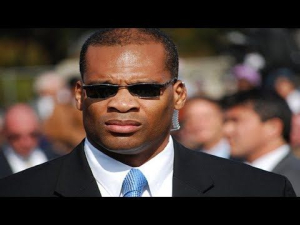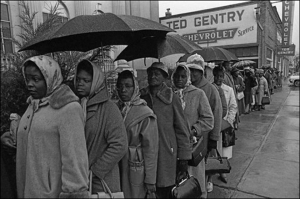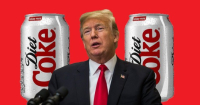This is one in a series of short stories I've been writing during my own coronavirus quarantine. You can find the complete collection of fiction written especially for this blog here. My books are available on the Amazon Kindle, for sale or for reading via Kindle Unlimited.
__________

He was raised in Selma, Alabama. His grandmother was of the Greatest Generation. She had made sweet bean pies for Dr. King in the 1950s. She told Q that he liked them.
From the time he was a little boy, during the Clinton years, Edna had drilled it into him. You are not what you say. You are what you do. You don’t talk about service. You serve. Life isn’t about your getting ahead, but all of us.
Q joined the service as soon as he could. He trained for the mission to take out Bin Laden but broke a small bone in his ankle and was scratched. The moment his tour was over he applied to join the Secret Service. The President himself approved the application.
That was four years ago. Now he was on body detail, his strength concealed by a dark suit, his all-seeing eyes hidden by dark glasses. His face was expressionless as he scanned his surroundings, keeping the Man safe.

People said the world changed in March of 2020. He barely noticed. The train wasn’t crowded, the restaurant was closed, but he could always pick up a sandwich somewhere. A reporter asked before a press conference whether the work was satisfying to him. He didn’t answer.
The answer was yes. Serving your country is an honor, regardless of who might be leading it.
He knew some of the Man’s secrets. He knew how much he ate, and what, and what he drank. He knew how the man spent his time. He knew how often he just repeated what he saw on TV, giggling like a girl as he tapped his Android.
None of that mattered to Q. His job was protection.

No, the kid wasn’t wearing a mask. Q wasn’t, either. The man didn’t like them and carrying one would just mean an extra bulge in the jacket. Q refrained and avoided people when he could. With this kid, he couldn’t.
When the Man asked Q to grab a Diet Coke for him from the fridge near his desk a few days later, insisting his doctor would never know, Q did it willingly. It was late morning. Q hadn’t washed his hands. He hadn’t thought to. They looked clean.
The Man took it in greedy fingers and then, after taking a big gulp, belched loud and moved two fingers from the can to his eyes, to get a second jolt of the cold. Had he placed them anywhere else, his makeup would have run.
That’s all Q could think of a week later, when he tested positive and was taken off duty, told to trace all his contacts of the previous week. Yes, he had touched the railing on the car. The kid was the only one he could think of. The kid had coughed as he passed, coughed right at him, and called him Tom, which wasn’t his name.
The interview came a half hour after the Man was rushed to Walter Reed. Everyone on his detail was tested. Q was the only one whose test came back positive.
When word came three days later that the Man had passed, Q was in quarantine in his Crystal City apartment. He was told by his supervisor not to answer the phone, and he didn’t. He was told not to watch cable TV, so he buried himself in Netflix. He watched Selma again, and Amazing Grace. He checked his phone to see when Respect would come out, with Jennifer Hudson. He buried himself in books about war, from the Revolution through Iraq and Afghanistan. That’s the way it is when your life is service.
To think Quadravious Flint might one day be mentioned alongside John Wilkes Booth and Lee Harvey Oswald never occurred to him. He would insist to his dying day it was the virus that killed the Man. But none of the Man’s supporters would believe him and that dying day came much sooner than he thought it would.










